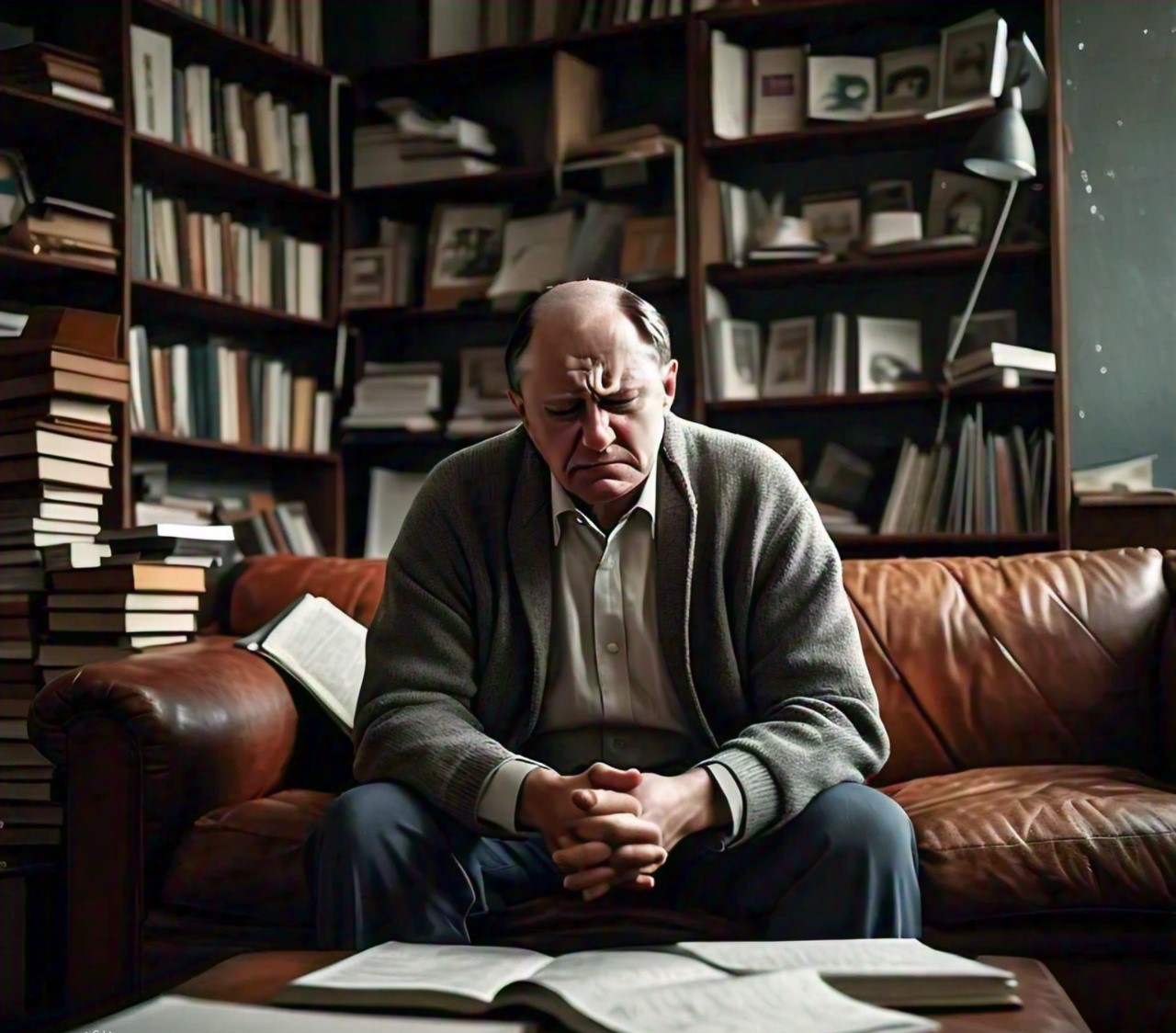Are you waiting for things to improve in your life? You will never be happy if you don’t take your happiness into your own hands. You may find yourself making excuses for why you are not happy; some people wait for things to happen to make them happy rather than find a way to be happy themselves. You’ll wait forever if you wait for happiness instead of making it yourself.
Ego says, ‘Once everything falls into place, I’ll feel peace.’ Spirit says, ‘Find your peace, and then everything will fall into place.’
Marianne Williamson
You may be experiencing some real difficulties in your life, just like some other people:
- You may be stressed out by money worries.
- You may be having problems at work or in a relationship.
- You may not be in a bad situation, but you feel like you can’t get rid of the dark cloud that follows you everywhere.
Do You Often Wonder, “Why Am I So Unhappy?”
You may feel that happiness is an erratic, random, and fleeting emotion; you feel happy only when you experience something “good.” Your happiness depends on external events.
We all know that lasting happiness is a matter of the heart, or at least we have all heard it.
When you are in a state of near-constant negativity and dissatisfaction with life, it’s hard to believe that happiness comes from within.
The good news is life can get better; taking responsibility for your actions (your life) and changing the situation yourself will help you stop feeling hopeless and allow you to feel much more in control of your life.
What Makes a Person Unhappy?
You may be unhappy because of your thinking patterns and circumstances.
Here are the top reasons you create more dissatisfaction and negativity in your life:
You are chasing happiness
Playing tag with a spirit is like chasing happiness; you will exhaust yourself, and yet you still come up empty-handed.
Do not misunderstand me; it’s more than okay to want to be happier; in fact, it’s very important, but when happiness is the end goal and not a byproduct of a well-lived life, things can go wrong.
It is the pursuit of happiness that makes you unhappy. – This is one of the many powerful paradoxes of life.
Life is not about riding on a wave of happiness all the time. The crests and troughs of life are all part of the journey; it’s the stormy seas and the calm waters.
Happiness is not a destination. Happiness is a byproduct of living a meaningful, purposeful, and fulfilled life.
Instead of seeking happiness, focus on doing the things that are important to you. These things will bring you a feeling of accomplishment and growth, even if it is uncomfortable at the beginning.
The more uncomfortable an activity is, the more likely it is to lead to expansion and growth; however, the more relaxed the activity, the more likely it is to cause stagnation. – Discomfort Razor; one of the many Philosophical Razors That Will Sharpen Your Mind | Critical Thinking.
Financial Stressors
Financial stress can make anyone unhappy; the mood can be affected by many things, including losing a job, falling behind in bills, or feeling as though you can’t get caught up. Financial stress is linked to depression and sadness.
You’re not independent – Can’t foot your bills
The greatest gifts you can give your children are the roots of responsibility and the wings of independence.
Denis Waitley
Becoming independent is a hallmark of adulthood; self-esteem is often affected by those who cling to others without any plan of breaking free.
You compare yourself to others.
The more we judge ourselves on what others have, look like, or have accomplished, the sadder and less happy we are.
You will feel agitated and unhappy if you are constantly longing for something else and feeling jealousy when you compare.
Staying Indoors
You can find many reasons to get out of the house. Did you know, for example, that being in nature has been scientifically proven to increase happiness? It has never been so important to recognize this fact as today if you spend so much time indoors.
Spending time in nature improves the immune system, reduces stress, and lowers blood pressure. All of these things contribute to happiness.

Isolating yourself
Another reason not to spend too much time alone at home is that socializing is one of the ways humans deal with stress.
Only about half of Americans have meaningful interactions in person on a daily base. In some European countries, up to 40 percent of people only have one meaningful interaction per month with family or friends.
Social isolation can lead to feelings of boredom and loneliness, both of which can cause serious unhappiness. One article by the American Psychological Association relates social isolation to “adverse effects on health, including depression, poor sleeping quality, impaired executive functions, accelerated cognitive degeneration, poor cardiovascular function, and impaired immunity, at all stages of life.”
You’re lonely
The most terrible poverty is loneliness, and the feeling of being unloved.
Mother Teresa
Nurturing relationships is a big part of our lives; we are naturally social creatures. Make an effort to do better if you are feeling alone, isolated, and depressed.
Connect with friends and family, and you will be more enthusiastic about the day.
How can you make good friends?
- Find people with similar beliefs and interests to form a strong foundation.
- Be genuine in your interest for others, smile, and reach out.
You’ll be surprised at how far you can go in building lasting relationships.
You don’t spend enough time alone
Solitude is the place of purification.
Martin Buber
We don’t always take the time to focus on ourselves and separate ourselves from all the noise.
Take time for yourself in a way you find relaxing and meditating;
don’t let the chaos of everyday life distract you from your time alone.
You focus on the negative
You are prone to ruminating about negative situations or possibilities. We all suffer from a “negativity biased” and tend to focus on negative thoughts, interactions, and events.
You will find it harder to be happy if you allow yourself to be influenced by negative thoughts because our thoughts always influence your feelings.
Focusing on lack
I can enjoy wonderful relationships, work that I love, and a life filled with happiness, but if I concentrate on one thing that goes wrong, I will make myself miserable.
This does not mean that I ignore problems; I try to solve them the best I can; I focus on solutions, progress, and growth.
For example, when I go for a walk, wash dishes, meditate, take a shower, and most importantly, pray.
Take note of your tendency to fixate on thoughts that make you feel something is wrong; sometimes, it can feel hard not to dwell on them, but you have to learn to focus on solutions, growth, and progress.
You are shying away from the pain that comes from hard work
In our society, pain is treated as an unwanted visitor; we have created a number of shields against pain, from painkillers to treat minor discomforts to distractions used for emotional pain and boredom.
Here’s an inconvenient fact: Pain is part of the life package.
It is impossible to grow without discomfort; a hard workout will make your muscles stronger; the pain of facing challenges and overcoming difficult situations can also build a stronger character.
Imagine that you have always wanted to start your own business; you’re afraid of failure, insecurity, and long hours. You decide not to step out of your comfort zone, but by trying to avoid the “pain,” you also miss out on opportunities for growth and fulfillment.
Again, the more uncomfortable an activity is, the more likely it is to lead to expansion and growth; however, the more relaxed the activity, the more likely it is to cause stagnation.
Discomfort Razor
You are living in your head instead of the present
Often, our minds act as time-travel machines. We dwell in the past and relive memories or harbor regrets; we worry about the future and create a web of anxiety over things that are yet to happen. We are ignoring the present moment, which is the only one we have.
The present is where life unfolds; you cannot change the past; you can shape the future, but first, you have to make the best of the present.
You worry too much
I am an old man and have known a great many troubles, but most of them have never happened.
Mark Twain
Worry causes inner turmoil like a chair that rocks feverishly but doesn’t move anywhere.
You would do better to focus your energy on the things you can change and let go of everything else. Bobby McFerrin said it very simply, “Don’t Worry!” “Be Happy!” A lack of worry is sure to bring happiness.
You hold onto the perceived idea of control
As your faith is strengthened you will find that there is no longer the need to have a sense of control, that things will flow as they will, and that you will flow with them, to your great delight and benefit.
Emmanuel Teney
Sometimes, it seems that people think they are straight out of a comic book; they think they can control people or at least everyone. What a heavy burden!
Superman’s strength is required to lift that much weight; the reality is we can’t control anyone but ourselves. As soon as you accept this, the pressure will be lifted, and you’ll start to enjoy your journey instead of planning the impossible.
You Are Struggling With Your Mental Health
Many people suffer from depression without realizing it. If your feelings of unhappiness have suddenly become intense, or you are having thoughts of suicide, you should seek help from a mental health professional.
You haven’t worked through your trauma
Unhappiness is a common feeling among people who are unable to overcome their trauma histories. This does not mean all unhappiness can be attributed to trauma, but there is a link between the past and present.
Some people don’t admit or recognize that they have experienced trauma; even if a person hasn’t experienced true trauma, they can still suffer from depression if they have been verbally bullied in school or treated unfairly at their workplace. Self-blame and self-criticism can also prevent someone from working through their trauma.
Waiting for clarity
To be able to do the things I love and to be happy, I needed to know my destination.
It turns out that was not the case; it was just an idea that I thought.
Even though I needed clarification, I found that if I did my best in taking action and making moves, I could still make progress, whether I had clarity or not.
Like walking through a thick fog, my path became clearer as long as I continued to move forward. If I had stood still, nothing would happen.
Do not wait for clarity. Listen to your heart, and then take steps. It doesn’t need to be perfect, but you need to be moving.
Wanting to take big leaps
When I get caught up in thinking that the future will save me, I want to take big leaps. I want to rush to my goal.
This behavior reduces my chances of achieving my goal; my work becomes sloppy; it emits a smell of selfishness.
But, if I let things take their time and let those thoughts pass, there’s a sense of peace.
While I write, I am not in a rush; I can feel the desire to finish, but I don’t get involved. Then, I focus on writing and let the words flow; for me, it feels like telling a story while reading a book. It eases the tension in my mind, and sometimes, even in a state of worry, I know tomorrow is brighter as I put in the work today.
Take a deep breath. Right now, you can experience a lot of happiness. You don’t always need to make big changes, but you need to make changes sometimes, and they are not always big; they are small but constant steps.
A common approach to self-improvement involves setting a big goal and then trying to take huge leaps to achieve it in the shortest time possible. Although this sounds great in theory, it can often lead to burnout, frustration, or failure. Instead, we should be focusing on continuous improvement and slowly but surely changing our everyday habits and behaviors.
Continue Reading: The Compounding Effect: The Power of Small Incremental Improvements
You’re impatient
Never cut a tree down in the wintertime. Never make your most important decisions when you are in your worst moods. Wait! Be patient. The storm will pass. The spring will come.
Robert Schuller
With my first blog, I had a hard time with patience; sometimes, you just have to wait.
Try to maintain a positive attitude when you are forced to slow down by circumstances.
You can either be calm and make the right decision or make a quick turn that leads you to a worse path.
Playing it safe
I get anxious, scared, and worried when I try to push beyond my comfort zone, but after a time, the discomfort will become comfortable.
What has changed? My thinking! Not playing it safe, not settling for less.
In order to get the happiness I seek in my life, I must grow and push myself. To achieve this, I have to leave my comfort zone; I need to stop being so cautious.
Sometimes, I have unsettling thoughts, but I refuse to play it safe.
Know that stepping outside your comfort zone means expansion and growth. Listen to your heart and then take the next step.
Seeking permission from others
Wanting to hear from others that you are on track is not necessarily wrong, but wanting to get permission to move to take action is wrong. The more you seek it, the more empty you’ll feel. Yes! At many points in life, we all need guidance, but permission to move and grow is not what it is.
Do not look to others for validation of your dreams. Follow your passion. That’s enough.
You seek validation
Learn to love yourself first, instead of loving the idea of other people loving you.
You will never be satisfied if you continue to look for someone else to decide your worth. You should be the only one who can determine your own happiness and value.
You’re complacent
Don’t let your special character and values, the secret that you know and no one else does, the truth – don’t let that get swallowed up by the great chewing complacency.
Aesop
It’s very easy to become complacent, but you can always leave this monster and start swimming to a better life instead of letting the water take you wherever it wants. You will never find joy in a passive life.
You are playing the victim card
It’s difficult to be happy when everything is conspiring against your happiness. Victims are rarely happy; they are unhappy because they have no control. They think that the cause of their unhappiness is an external factor, and it can be removed only by this external factor. They are stuck in the land of “if only.”
You will also believe that you are powerless to change your situation if you choose to live as a victim; this is not the way to live a meaningful life.
Change your flawed belief systems instead, empower yourself to accept responsibility for the actions you take and the reactions they provoke, and never ever give away your power to anyone else.
Drugs and excessive drinking
The effects of alcohol and drugs, including cannabis, can make a person feel less inhibited. They may also experience a short-lived feeling of happiness; both alcohol and drugs can have a negative impact on your happiness in the long term.
Alcoholism or drug addiction can have serious negative effects; these include:
- Feelings of fatigue
- Decreased energy
- Guilt
- Inability to concentrate and make decisions
- Feeling pessimistic
- Insomnia
- Irritability and physical pain.
If you feel unhappy, anxious, or stressed the next morning after drinking a couple of glasses of wine or beer with your friends, then it’s time to reconsider.
Everyone is different. This means that the behavior of your family or friends may not be suitable for you. Although alcohol and drugs are deeply embedded in our culture, that doesn’t mean they don’t contribute to your unhappy feelings.
You are in an unhealthy relationship
If a dearest relationship begins to go bad, it can make a person very unhappy. Your life can feel like a mess when things are going wrong; you might feel constantly tense, angry, hurt, and unloved. You may be worried that the relationship will end, that your partner is going to leave you, or that you have to leave them.
Stress can come from unhealthy or toxic relationships; it doesn’t matter whether the relationship is romantic, platonic, or with a family; even co-workers can be affected by toxic relationships.
You blame others for your unhappiness
We’ve all done it: blamed our bosses for stress, parents for insecurities, and our exes for our inability to trust; we say they are responsible for our misery. Here’s the truth: only you are responsible for your own happiness.
It is easy to blame others, to be the victim, and to lose control; this absolves you of responsibility, and it looks like it protects us from the harsh truth that only we have the power to change our circumstances.
It’s like giving someone else control of your life; you are saying that you can affect my mood or my state of mind.
Why would you want to give away such power?
Take back your power; you are not a puppet that sways to the whims of others. You are in control of your actions, reactions, and, ultimately, your happiness.
Imagine you are stuck in traffic and late for your meeting; the cab driver has taken a longer route. You could spend the whole ride berating the driver for ruining your day, or you could use it to prepare for the meeting or listen to your favorite podcast. Your reaction is what makes all the difference; the situation may not have changed, but how you react to it can.
Let’s face it: the bottom line is: Don’t let others control or satisfy your emotions. Remember, no one can make you feel inferior without your consent. And certainly, no one can make you unhappy without your permission.
You hold grudges
Anger is an acid that can do more harm to the vessel in which it is stored than to anything on which it is poured.
Mark Twain
By carrying around all that negative energy, you are hurting yourself. Let go of the bitterness for yourself.
You seek material things over everything else in life
Many people are poor because they only have money.
Money is undoubtedly a valuable asset in life, but it does not bring happiness.
Imagine how you would react if it was your last breath. Would you rather have a better relationship with others or experience certain things than make more money?
You will be more fulfilled if you follow and build values than follow material things.
You Are Burned Out
Burned out can cause more than just feeling overwhelmed at work; it can also lead to mood swings and mental health issues. It can manifest as physical symptoms like feeling tired or exhausted, crying often, having difficulty sleeping, and getting emotional about things that would not normally affect you.
Read More: What is Resilience, and why Is It Important to Bounce Back and Continue?
Read More: Integrity vs. Despair in Psychosocial Development | Practical Psychology
Read More: What is Objective Truth: Is Truth Even Objective or Subjective?
You are worried about family or loved ones
It is obvious that if you have kids who are having difficulties in school or with their emotional health, it can affect your mood. Similarly to this, if a loved one is going through a mental crisis or a personal crisis, it can affect your mood.
You still haven’t found your purpose
It is a waste to try and be someone else. Many people believe that the purpose of their lives is to get to the weekend; it’s no wonder that there are so many miserable clock punchers in the world.
Find your passion, and then pursue it; finding your place in the story can be a great adventure in life!
You are more of an actor than an author
To be yourself in a world that is constantly trying to make you something else is the greatest achievement.
Ralph Waldo Emerson
When you pretend to be someone else, you do the world an enormous disservice. Be authentic!
To play a role you were not meant to in order to satisfy outside expectations will only lead to heartbreak.
You will know that even if you push the pit of your stomach down, you are compromising your emotional well-being and happiness by reading lines you did not write and, worse still, do not believe.
You’re insecure
The task we must set for ourselves is not to feel secure, but to be able to tolerate insecurity.
Erich Fromm
Growth occurs outside our comfort zones. You will never find your wings If you are too insecure to step out of your comfort zone.
A bird must eventually learn to fly. You can’t stay in the nest forever and be happy watching others soar.
You procrastinate
Know the true value of time; snatch, seize, and enjoy every moment of it. No idleness, no laziness, no procrastination: never put off till tomorrow what you can do today.
Lord Chesterfield
Procrastination spirals into frustration; you will find that the more you procrastinate, the heavier it becomes. You can’t run a marathon and pick up stones along the way; the stress eventually becomes too much.
Finish those projects and throw away the rocks; this will allow you to move through your day with ease and not drag 20 other projects behind you.
You are not sleeping enough
I love sleep. My life has the tendency to fall apart when I’m awake, you know!
Ernest Hemingway
Sleeping well is associated with a 10-fold reduction in depression risk for people who are insomniacs. Sleep problems have been linked with many other health conditions; if you’re not sleeping well, now is the time to fix this problem.
Conclusion
By examining a complex issue that is prevalent in our fast-paced, demanding world, this article has shed light on unhappiness’s multifaceted nature, showing that external circumstances, internal thought patterns, or biological factors can cause it. This article emphasizes the importance of self-awareness and being able to distinguish between mood fluctuations that are short-lived and persistent, more profound unhappiness.
The article also highlights the importance of gratitude, mindfulness, and meaningful relationships in reducing unhappiness, and these elements are powerful tools to help us achieve contentment.
Happiness is subjective, and the path towards it involves:
- Self-reflection and forming positive habits.
- Understanding the reasons for their unhappiness.
- Making positive changes can help individuals live a more fulfilled and happier life.



